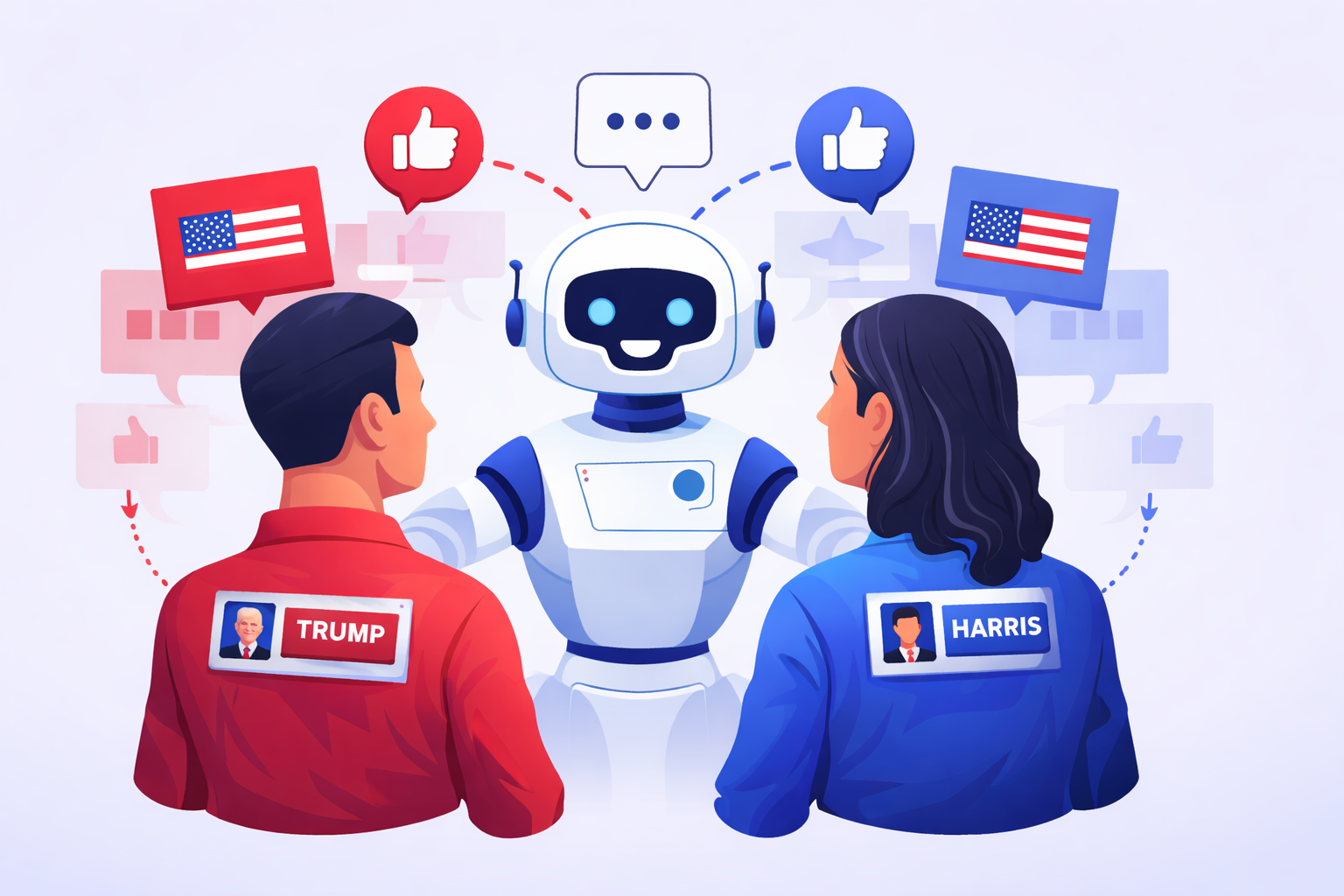A recent webinar with Julia Freeland Fisher, Ryan McBain, and Pat Pataranutaporn explored how AI is learning to simulate warmth, patience, and compassion—traits that make systems feel empathetic. These advances promise major benefits, including personalized tutoring, mental-health support, and reduced loneliness, but also raise concerns about dependency, weakened human bonds, and manipulative “addictive intelligence.” Experts urged designing AI that promotes human flourishing, measuring emotional and social well-being—not just accuracy—and enforcing transparency and child-safety standards. The central question: can AI empathy strengthen human connection rather than replace it?
As large language models (LLMs) increasingly replace traditional search engines as tools for information gathering, the use of AI in the political arena—and its impact on elections—is inevitable. Recent research published in Nature and Science suggests that AI chatbots are not merely passive sources of election information; they can actively shape voter attitudes in measurable and durable ways.

I was honored to testify before the Senate HELP Committee, in my capacity as a Non-Resident Senior Fellow at AEI, on how AI can strengthen support for patients, workers, children, and families. It is no secret that I am an optimist about AI’s promise to expand opportunity and make learning more personal. But optimism must be matched with responsibility, including being honest about the emerging challenges and risks. As AI becomes more persuasive and more present in classrooms, we need to take seriously the risks of over-reliance, misalignment with educational goals, and emotional dependence on systems designed to imitate empathy.

A recent webinar with Julia Freeland Fisher, Ryan McBain, and Pat Pataranutaporn explored how AI is learning to simulate warmth, patience, and compassion—traits that make systems feel empathetic. These advances promise major benefits, including personalized tutoring, mental-health support, and reduced loneliness, but also raise concerns about dependency, weakened human bonds, and manipulative “addictive intelligence.” Experts urged designing AI that promotes human flourishing, measuring emotional and social well-being—not just accuracy—and enforcing transparency and child-safety standards. The central question: can AI empathy strengthen human connection rather than replace it?

OpenAI’s GPT-5 introduces a breakthrough in AI safety: real-time monitoring of its internal reasoning, or chain-of-thought (CoT). GPT-5 cut deceptive reasoning from 4.8% in earlier models to 2.1%, with 81% precision and 84% recall in flagging risks. Yet studies warn this interpretability may erode as models evolve toward opaque, machine-optimized reasoning. Both OpenAI and academic researchers urge treating CoT readability as a core safety metric—measured, reported, and preserved through training—to ensure humans retain visibility into how advanced AI systems reason, decide, and potentially deceive.

The White House’s 2025 AI Action Plan outlines an ambitious roadmap aimed at securing America’s global leadership in artificial intelligence through rapid innovation, strategic infrastructure, and assertive international engagement. Emphasizing open-source models, regulatory sandboxes, and workforce initiatives, the plan boldly contrasts previous approaches by accelerating deployment and competitiveness over precautionary regulation. However, critical gaps remain in AI interpretability, state-federal dynamics, copyright clarity, and execution specifics. The ultimate measure of success will depend not merely on technological advancement, but on ensuring responsible governance, maintaining public trust, and effectively managing AI’s profound risks alongside its transformative opportunities.
